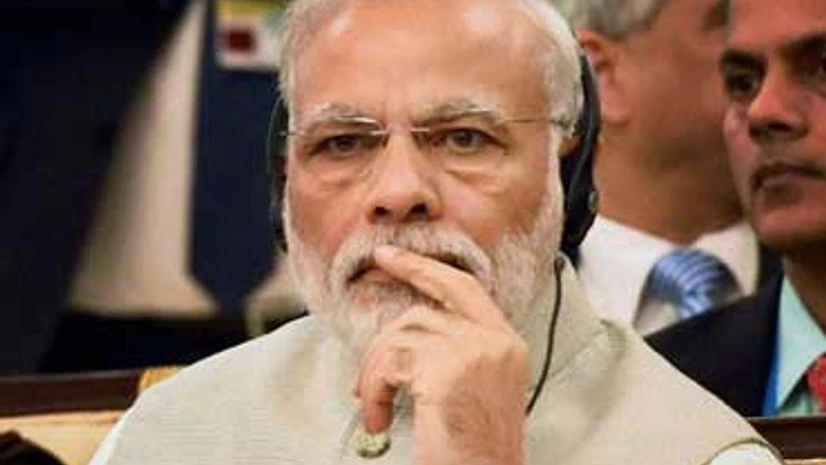Two things happened last week. The Supreme Court asked Solicitor General Ranjit Kumar for a status report on the ground situation in the Kashmir Valley; and Prime Minister Narendra Modi lost his temper with a group of Bharatiya Janata Party (BJP) leaders from Jammu.
“Kyon bayanbaazi karte hain?” he asked, asking members of his own party to be sensitive and cognisant of feelings in the valley.
There may have been another reason for the prime minister’s ire. A bench of Chief Justice TS Thakur, Justice AM Khanwilkar and Justice DY Chandrachud, while seeking a report on Kashmir also warned the petitioner, the Jammu and Kashmir National Panthers Party, that it would come down very heavily if it tried to derive political mileage from the court proceedings.
More From This Section
“Innocent Kashmiris are being brutalised and shot like pigeons by the pellets fired by the police against all national and international norms and such practice is against the principle of non-violence that India has been spreading to the entire world,” Bhim Singh told the court. The court, which was initially reluctant to entertain the public interest litigation, said that the situation in the state could not be “managed judicially” as it was a “political” issue.
Earlier, the court had agreed to hear the plea seeking imposition of Governor’s rule in the state on account of the prevailing law and order situation.
The plea has said that Governor’s rule under Section 92 of the Constitution of Jammu and Kashmir should be imposed and sought a direction to the governor to dissolve the Assembly “which has failed to discharge its duties and functions”.
“The situation in Jammu and Kashmir has been chaotic and there is no public order in existence as such,” the lawyer had contended.
The plea said, “There is literally rule of the gun and the people in the Valley have no access to even water or medical stores.”
“The people in Jammu and Kashmir have been forced to stay inside their house and homes without food, medicines or other essential commodities needed for human survival,” it said.
This trend and tenor of argument is enough to alarm anybody. The prime minister has been battling his own party for some time now to retain hold over a state where the BJP is in government for the first time in history.
In many ways he is on the ropes. Last month, he had to fall back on the powers of the district administration to cancel a yatra to Budgam in central Kashmir, proposed by a New Delhi organisation. There was enormous pressure from the BJP to allow the yatra.
The Acharya Abhinav Gupt Samaroh Samiti planned to take out a yatra to a cave — believed to have hosted scholar and seer Acharya Abhinavagupta — in Beerwah from June 11, a day after the Kashmiri Pandits would have converged in Ganderbal district for the Kheer Bhawani festival. While Ajay Bharti, the convenor of the yatra, said it had nothing to do with religion, BJP spokesman Khalid Jehangir said: “A few people with vested interests are bent upon opposing any move to promote communal harmony in Kashmir. People need to dwell on history, because there had been an annual pilgrimage before 1947.”
But in the valley, many saw this as a deliberate provocation. “It’s a deliberate attempt to disturb the peace. Communal forces, backed by the RSS and the government, are indulging in cultural aggression. The baseless story around Beerwah has been ruled out even by the state revenue department,” Hurriyat chairman Syed Ali Geelani said.
The yatra did not happen, but it did rattle the government. As part of the state government, the BJP wanted to assert itself. How much, was the issue.
Interestingly, the tone for restraint was set by BJP leader Ram Madhav. Soon after the killing of Burhan Wani and protests in Kashmir, he tweeted: “Loss of lives in South Kashmir unfortunate and saddening. We have to develop non-lethal ways of tackling such situations. Police too suffer heavily.” Many in the state BJP took up this refrain. A top Union minister said: “Why was it necessary to kill Burhan? He was only a boy. He could have been the counterpoise to a separatist leadership…”
It is now crystal clear that the BJP in Kashmir is ready to strike but afraid to wound. It is in the government and knows it cannot leave without toppling it. But it also needs to satisfy its own constituency in Jammu. And if non-political actors like the Supreme Court enter the picture, the party knows the issue will be complicated beyond redemption.
A meeting of Rashtriya Swayamsevak Sangh (RSS) leaders was also held earlier this month at Udhampur. It reviewed the working of the BJP-PDP (Peoples Democratic Party) government. The prime minister is holding back his own party from taking any precipitate action. The question is: Will his party listen to him?
Disclaimer: These are personal views of the writer. They do not necessarily reflect the opinion of www.business-standard.com or the Business Standard newspaper

)
